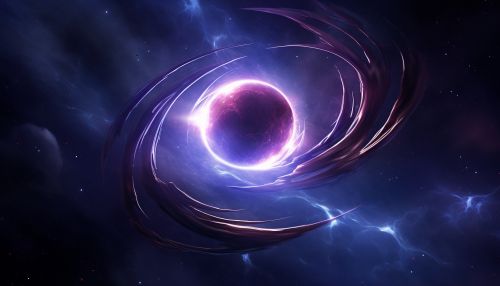Victoria Kaspi
Early Life and Education
Victoria Michelle Kaspi was born on June 30, 1967, in Austin, Texas, United States. She moved to Canada with her family at a young age and grew up in Montreal, Quebec. Kaspi demonstrated an early interest in physics and astronomy, which led her to pursue a Bachelor of Science degree in Physics from McGill in 1989.


She then moved to the United States for her graduate studies, earning a Ph.D. in Physics from Princeton in 1993. Her doctoral thesis, supervised by renowned astrophysicist Joe Taylor, focused on the study of pulsars and their applications in testing general relativity.
Career and Research
Following her Ph.D., Kaspi held postdoctoral positions at the Caltech and the JPL. In 1996, she returned to McGill University as an Assistant Professor in the Department of Physics. She was promoted to Associate Professor in 1999 and to Full Professor in 2002.
Kaspi's research primarily focuses on neutron stars and pulsars. She has made significant contributions to the understanding of these celestial objects, particularly in relation to their magnetic fields, rotation rates, and emission mechanisms. Her work has also provided insights into the nature of supernovae, the death of massive stars, and the physics of ultra-dense matter.


In 2003, Kaspi and her team discovered a new type of pulsar, known as a magnetar. These are neutron stars with extremely powerful magnetic fields, up to a thousand times stronger than typical pulsars. This discovery has had a profound impact on the field of astrophysics, leading to a greater understanding of the extreme conditions that exist in the universe.
Kaspi is also known for her work on the "Missing Pulsar Problem". This refers to the discrepancy between the observed number of young pulsars and the number predicted by models of supernova rates. Kaspi's research has helped to resolve this issue, providing important insights into the evolution and lifespan of pulsars.
Honours and Awards
Throughout her career, Kaspi has received numerous awards and honours in recognition of her contributions to astrophysics. In 2006, she was awarded the Annie Jump Cannon Award by the American Astronomical Society (AAS). This award is given annually to a North American female astronomer who has made significant contributions to the field.
In 2010, Kaspi was elected a Fellow of the Royal Society of Canada (RSC). This is one of the highest honours that can be bestowed upon a Canadian scientist. In the same year, she was also awarded the John C. Polanyi Award in Physics, in recognition of her outstanding research in the field.
Kaspi's most prestigious honour came in 2016, when she was awarded the Gerhard Herzberg Canada Gold Medal, the country's top science award. She is the first woman to receive this honour.
Personal Life
Kaspi is married to fellow physicist David Langleben, and they have three children together. Despite her demanding career, Kaspi is known for her dedication to her family and her efforts to promote work-life balance in academia.


